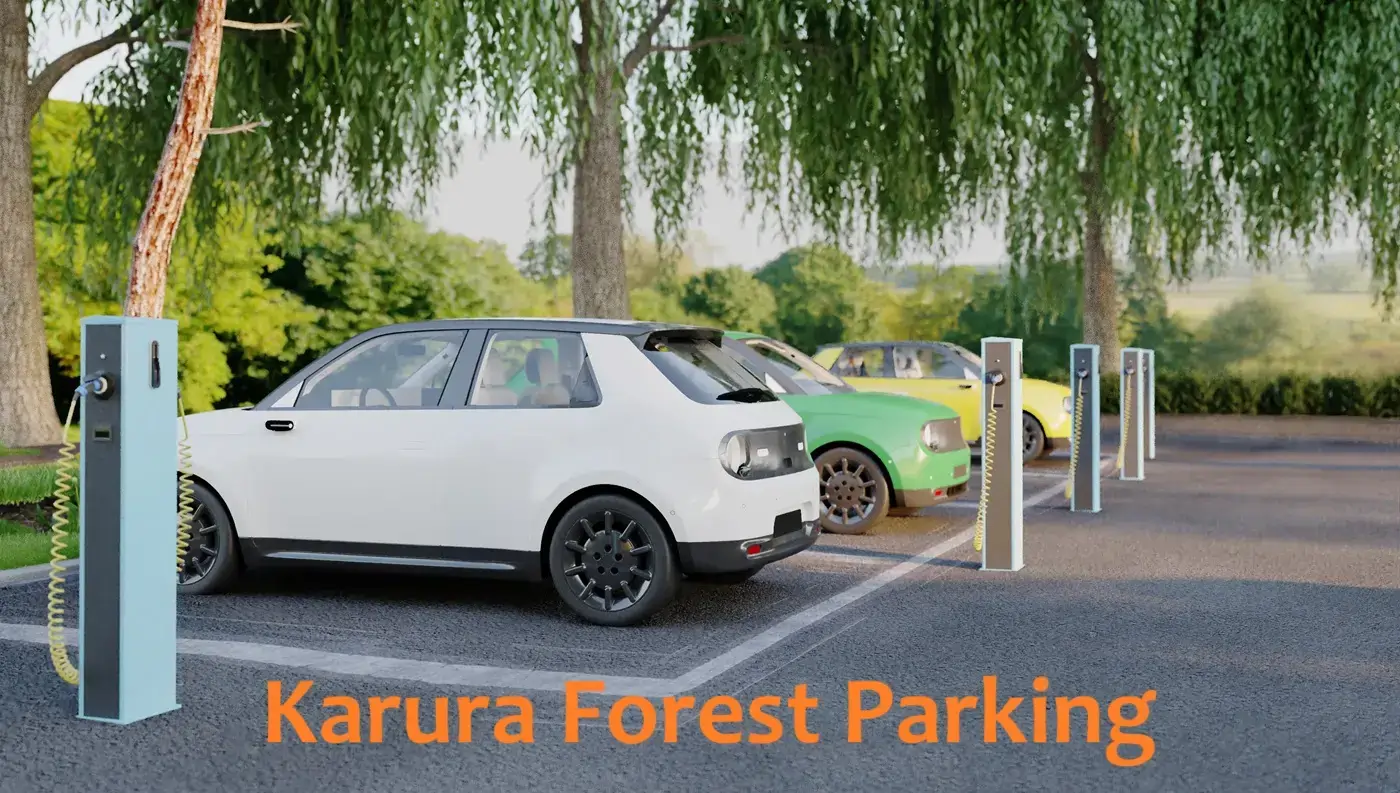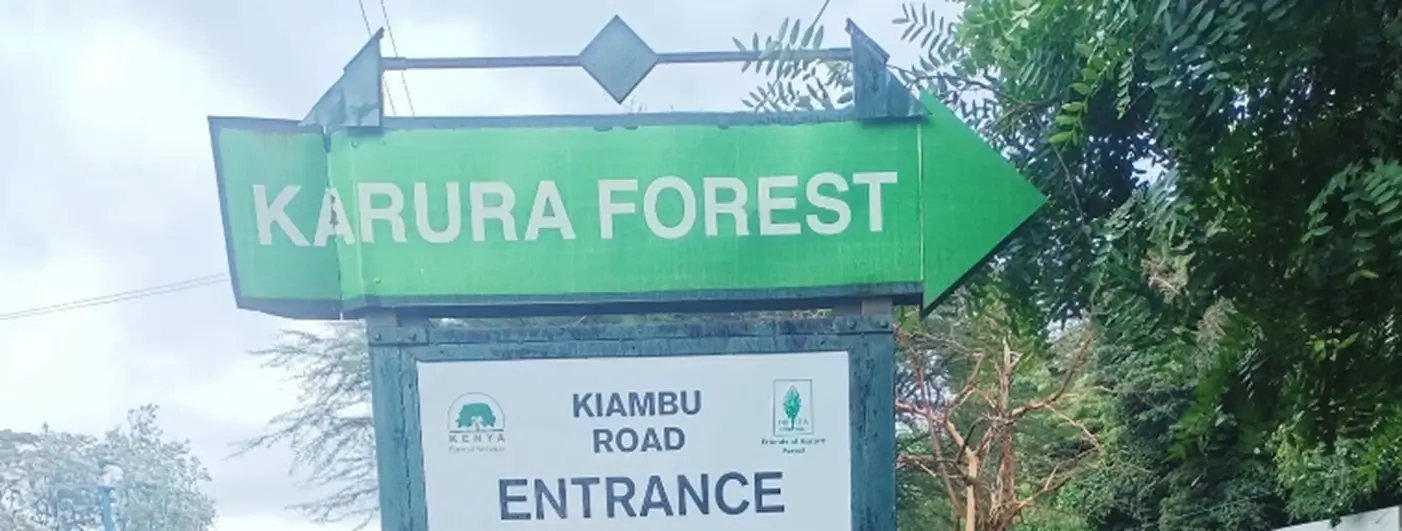Karura Forest, an important urban green space located in Nairobi, Kenya, is managed through a partnership between the Kenya Forest Service (KFS) and the Friends of Karura Forest (FKF) community association.
Visitors arriving by private vehicle must adhere to a structured parking fee system.
The charges are implemented to manage vehicle flow and contribute to the forest's conservation and maintenance.
All parking fees are levied on a per-day, single-entry basis.

Karura Forest Parking Charges 2026
Parking for private and commercial vehicles is available at most designated forest gates.
The fee structure is differentiated based on vehicle type and day of the week.
The following table details the official parking rates for 2026.
| Vehicle Type | Weekday Fee (KES) | Weekend/Public Holiday Fee (KES) | Special Event Fee (KES) |
|---|---|---|---|
| Car | 200 | 300 | 500 |
| Motorcycle | 100 | 150 | 250 |
| Minibus / Bus (up to 33 seats) | 800 | 1,000 | 1,500 |
| Bicycle | Free | Free | Free |
Note: These fees are applicable during the official opening hours of 06:00 to 18:00.
It is advisable to confirm the latest rates on the official Friends of Karura Forest (FKF) website before your visit, as they are subject to change.
Ancillary Parking Charges and Penalties
Beyond the standard entry fees, visitors should be aware of additional charges that may be incurred under specific circumstances.
Overtime Parking Charges
Vehicles remaining in the car park after the official closing time of 18:00 will incur an overtime penalty.
This is typically charged at a rate of KES 200 for each additional hour or part thereof.
Visitors must exit the forest promptly to avoid these charges.
Penalties for Lost Parking Tickets
The loss of a parking ticket is subject to a penalty.
Visitors must report the loss to staff at the exit gate.
A flat penalty fee of KES 500 is typically applied.
This is in addition to the standard daily parking rate for the vehicle type.
Special Event Parking
Karura Forest hosts various special events, including marathons, concerts, and large corporate gatherings.
During these periods, standard parking fees are suspended.
They are replaced by a higher, flat-rate special event fee, as indicated in the table above.
Event-specific parking information is usually communicated by event organisers and FKF in advance.
Accepted Payment Methods at Karura Forest
Karura Forest operates a cashless payment system.
This system ensures efficiency and security.
Cash is not an accepted form of payment at any of the gates.

M-PESA Mobile Money
Payment via mobile money is the primary method.
Visitors can use the Lipa na M-PESA Pay Bill option.
They can also respond to an STK push notification initiated by the gate staff.
- Go to the M-PESA menu
- Select 'Lipa na M-PESA'
- Select 'Pay Bill'
- Enter Business Number: 838602
- Enter Account Number: Your Full Name or Vehicle Plate Number
- Enter the correct amount and your M-PESA PIN to authorise the payment.
Card Payment Options
Debit and credit card payments are accepted at major gates.
These include Gate A (Limuru Road) and Gate C (Kiambu Road).
The system accepts both Visa and Mastercard.
Contactless payment options are also available for faster processing.
Cheque Payments for Organisations
Organisational or corporate payments can be made by cheque.
Cheques must be made payable to "Friends of Karura Comm. Forest Ass."
They can be delivered to the office at Gate A.
Key Parking Regulations and Tips
For an efficient visit, visitors should observe the following logistical points.
- Parking Areas: Park only in the officially designated car parks near the entrance gates. Parking along forest service roads is prohibited.
- Proof of Payment: Retain your payment confirmation message or receipt until you exit the forest, as it may be required for verification.
- Gate-Specific Options: Confirm that your preferred payment method (e.g., card payment) is available at your chosen entry gate before arriving.
- Security: Guards monitor the car parks; however, parking is at the owner's risk. Store valuables out of sight inside your vehicle.
- Drop-off/Pick-up: A standard fee applies to all vehicles entering designated car parks. There is no grace period.
Designated Free Parking Zones
Limited free parking options exist but are subject to strict conditions.
- Bicycle Racks: Cyclists have access to designated bicycle parking racks at all main gates at no charge.
- Roadside Parking: Parking along Kiambu Road, adjacent to the forest boundary, is a public option. Space is extremely limited. It is subject to Nairobi City County parking regulations, and this is not official Karura Forest parking.